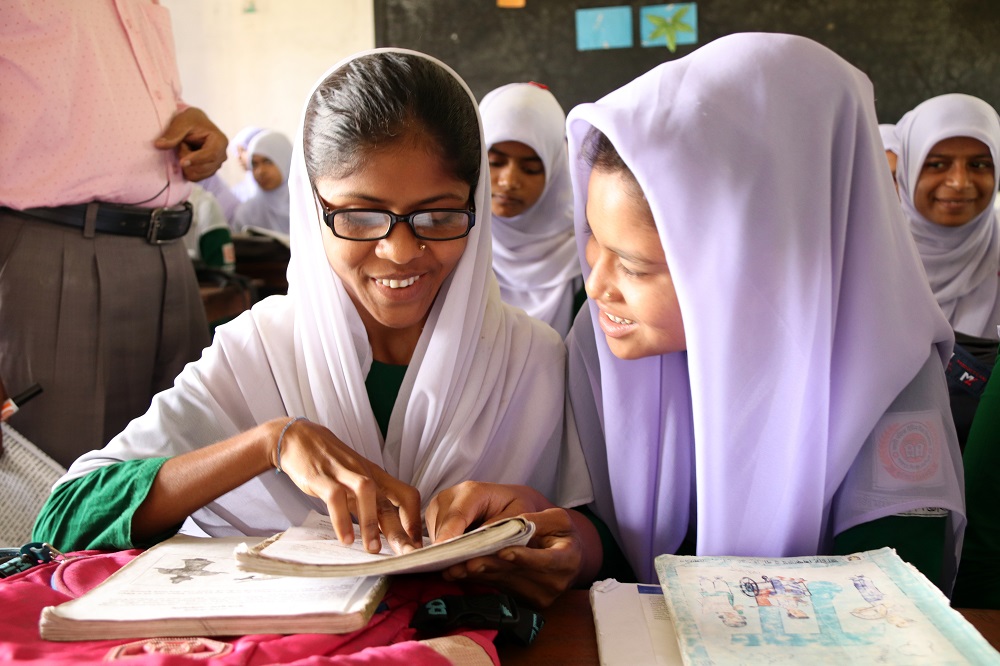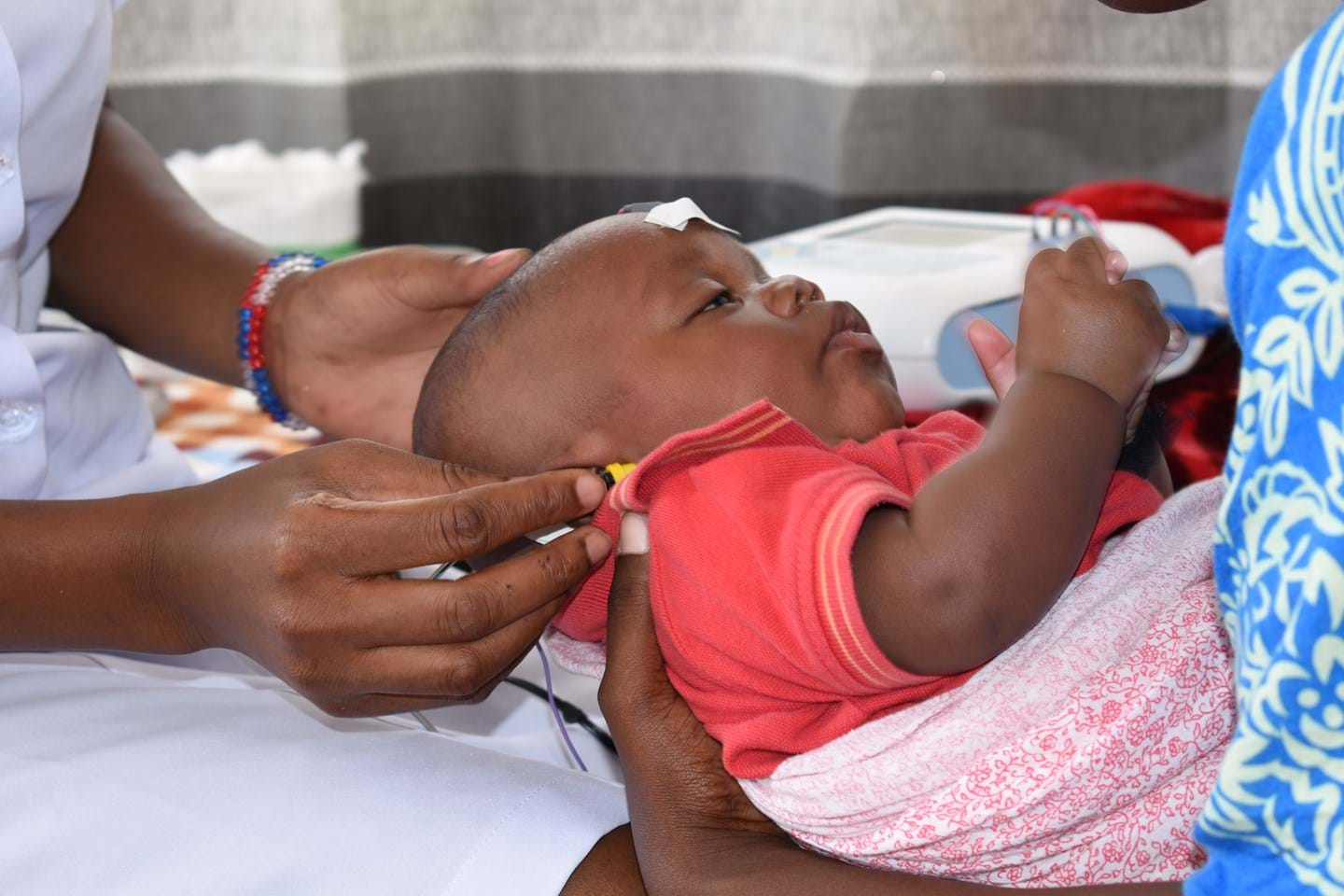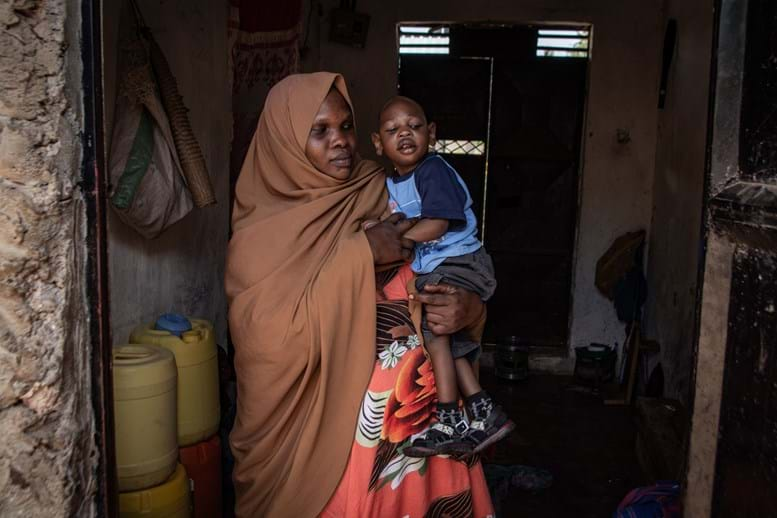Inclusive education
Inclusion in education enables children and young people with deafblindness to build the skills and knowledge to thrive throughout life.
Children and young people with deafblindness have a right to receive an education. The United Nations Convention on the Rights of Persons with Disabilities (CRPD) specifically mentions children with deafblindness in relation to education.
It states that they should receive an education that is delivered using appropriate means of communication and in suitable learning environments to meet individual needs.
Despite this, children with deafblindness worldwide are 17 times less likely to be in school than children without disabilities.*
The challenge of accessing a quality education
In many countries, education professionals do not receive specific training on including a student with deafblindness in the classroom.
They may not know how to make suitable adaptations to teaching methods and learning strategies. Extra help, such as teaching assistants, are not always provided to offer one-to-one support.
Additionally, lack of awareness and social stigma around disability can make it difficult for children with deafblindness to access schools and other educational settings in their communities.
How Sense international helps deliver inclusive education
Sense International is working to ensure that children with deafblindness and other complex disabilities receive a quality education that responds to their individual needs.
Our early identification and intervention work sets the foundation for lifelong learning because specialist therapies prepare children to transition smoothly into early education in a pre-school, primary school or home-based setting.
We work closely with schools so that they are well prepared to receive students with deafblindness. This includes supporting students, teachers and members of school management to learn more about disability and deafblindness so that they offer an inclusive environment for all learners.
It may also include making physical adaptations within the school grounds and classrooms so that they are more accessible.
We provide training to education professionals so that they are able to adapt their teaching methodologies to benefit children with deafblindness.
In some countries, we have also trained Learning Support Assistants to provide individualised support to children with deafblindness in the classroom.
We have used this model to demonstrate how more inclusive education could be achieved with wider government support.
We recognise the importance of tailoring educational opportunities to the individual needs of children with deafblindness.
In some cases, this means that a home-based education is more appropriate for the child. We provide training and support to educators who carry out home visits, and also help parents to learn how they can work with their child to strengthen skills for self-expression, mobility and self-care.





